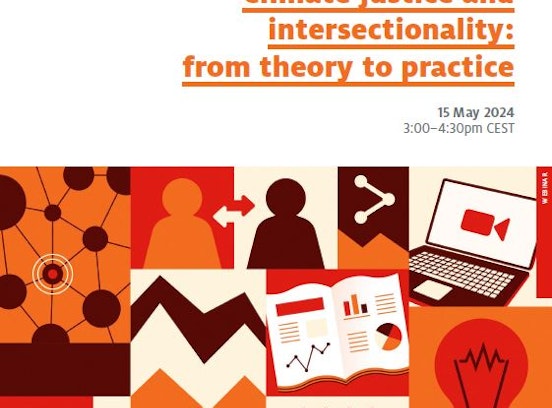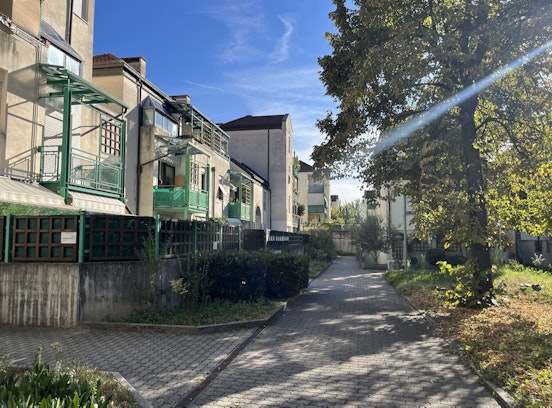Center for Climate Change and Transformation - News & Events - WEBINAR - Climate justice and intersectionality: from theory to practice
WEBINAR - Climate justice and intersectionality: from theory to practice
Eurac Research´ Center for Climate Change and Transformation and Institute for Minority Rights announce the inaugural webinar for their ASCEND Project: Exploring Climate Justice and Intersectionality in Adaptation and Transformation
- English
- Date: 15.05.2024, 15.00 - 16.30
- Place: Online
- Typology: Webinar
The Center for Climate Change and Transformation, together with the Institute for Minority Rights, is thrilled to announce the launch of the first webinar for its innovative project, ASCEND - ClimAte JuStiCe and INtersectionality: from ADaptation to Transformation. The webinar will take place on 15 May 2024 at 3.00 CEST and will delve into crucial topics surrounding climate justice and intersectionality in the context of adaptation and transformation efforts.
The webinar will feature the participation of Dr. Francesca Rosignoli and Dr. Beatriz Felipe Pérez, with the moderation of Dr. Alexandra Tomaselli.
In the first part of the webinar, Francesca Rosignoli will focus on Environmental justice, climate justice and intersectionality.
Dr. Rosignoli aims to explain the origins of environmental justice, its dimensions, and its subcategories, including a focus on climate justice and current trajectories. This contribution will provide a closer examination of Critical Environmental Justice and the inclusion of intersectionality within the main pillars of its trajectory. As extensively shown by leading scholars such as David Pellow, unequal power relations generate the disproportionate sharing of environmental risks and amenities at the expense of marginalized, low-income, discriminated communities. Those communities can be discriminated against not only on the basis of class and race but also on age, gender, sexual orientation, dis/ability, nationality, ethnicity, religion, etc. And while these communities experience different forms of discrimination, they are ultimately subjected to the same logic of domination and othering as practiced by more powerful (e.g., white) groups.
In the second part of the webinar, Dr. Beatriz Felipe Pérez will discuss the complexities of human mobility in the context on the global climate crisis.
Global North nations and transnational companies bear the greatest responsibility for historical greenhouse gas emissions and other environmental threats. It is undeniable that the Global South and people in vulnerable contexts such as women, youth, elders are the most affected by these impacts. Human mobility in the context of the global climate crisis, stemming from climate impacts in socio-economically vulnerable areas, particularly in the Global South, exemplifies climate injustice. One of the key issues that has garnered attention is the legal protection of “climate migrants”, and numerous legal solutions have been proposed to safeguard those affected. However, there exists a legal gap, especially for those crossing borders, that remains unresolved. Hence, in this part of the webinar an initial examination of concepts, numbers, and primary dilemmas concerning human mobility and climate change will be offered. Additionally, experiences from fieldwork will be shared to shed light on the myriad complexities of this phenomenon.
The webinar is open to all interested individuals and organizations. To register, please visit: https://forms.office.com/e/K4nSrbaVD3
Below here you will find more information about the event and the project ASCEND.

